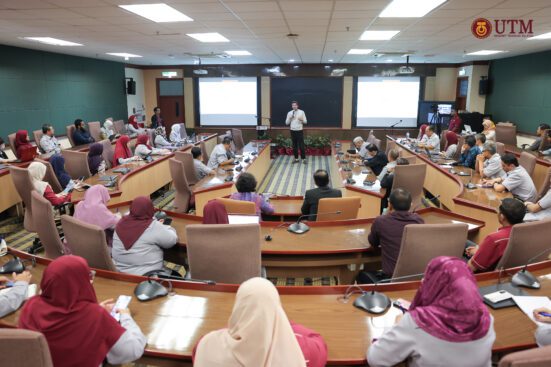
Kuala Lumpur, 8th March – In conjunction with the establishment of Universiti Teknologi Malaysia’s (UTM) new Faculty of Artificial Intelligence, renowned AI Futurist Zack Kass has been appointed as the Distinguished Adjunct Professor. In this pivotal role, he will advise on the development of AI academic programs and contribute to the Malaysia Artificial Intelligence Consortium.
Marking the beginning of his appointment, Zack Kass delivered a premiere lecture titled ‘Malaysia AI Frontier: The Landscape and Our Future of the World and Humanity.’
This lecture provided deep insights into the future of AI, highlighting its critical importance for countries like Malaysia, a rapidly advancing Southeast Asian economy powered significantly by its small and medium enterprises (SMEs), which make up 60% of its economy
Throughout his talk, Kass explored various facets of AI development and its societal impacts. Here are five key takeaways from his lecture, shaping our understanding of AI’s role in our future.
Malaysia’s Unique Opportunity in AI Adoption
Kass underscored Malaysia’s potential in AI adoption. Despite the challenges of competing with global AI powerhouses such as USA, Japan, and China, he posited that Malaysia could excel by rapidly adopting AI, thereby achieving significant economic and societal growth. This strategic move, Kass suggests, could catapult the nation towards unprecedented economic and social prosperity, bolstering the middle class and empowering small businesses.
The Advent of Artificial General Intelligence (AGI)
A significant part of Kass’s lecture was dedicated to Artificial General Intelligence (AGI) — a theoretical stage of AI where machines can perform any intellectual task that a human can. Kass expressed his belief that AGI could lead to groundbreaking scientific discoveries and might become the pinnacle of human technological advancement. However, he also cautioned about the inherent risks associated with AGI.
The Evolution and Future Trajectory of AI
Kass provided a fascinating overview of the current state and future direction of AI technology. He discussed recent developments such as OpenAI’s Sora, emphasizing the rapid advancements in large language models (LLM). He also touched upon the industry’s shift towards smaller, more efficient AI models, signaling a new phase in AI development.
Societal and Professional Impacts of AI
The lecture delved deep into how AI is set to transform societal structures and work environments. Kass spoke about the challenges of job and identity displacement in the face of AI advancements. He stressed the necessity for society to quickly adapt to AI’s growing capabilities in various sectors, such as law and transportation, highlighting the profound changes AI will bring to our professional and personal lives.
Embracing an AI-Powered Future
Kass concluded with a call to action, urging individuals, particularly in academia and business, to embrace AI to enhance productivity and innovation. He encouraged focusing on humanistic qualities and skills that AI cannot replicate, envisioning a future where AI augments human capabilities, leading to a more abundant and prosperous society.
Zack Kass’s lecture offered a compelling glimpse into the potential of AI and the pivotal role it will play in shaping our future. As Malaysia and other nations navigate this uncharted territory, the insights provided by experts like Kass will be invaluable in steering towards a future that harmoniously blends technological advancements with humanistic values. The journey towards an AI-driven era is filled with both challenges and opportunities, and it is up to us to harness its potential for the betterment of society.
To echo the above, UTM Vice-Chancellor, Prof. Datuk Ir. Ts. Dr Ahmad Fauzi Ismail is optimistic that UTM through its Artificial Intelligence Faculty will spearhead academic and professional development programmes that will integrate humanistic values and ethics.
Additionally, the faculty through the Malaysia Artificial Intelligence Consortium will bring together other universities, agencies and small and medium enterprises’ to accelerate the adoption of AI for the benefit of the nation.
Source: UTM NewsHub
